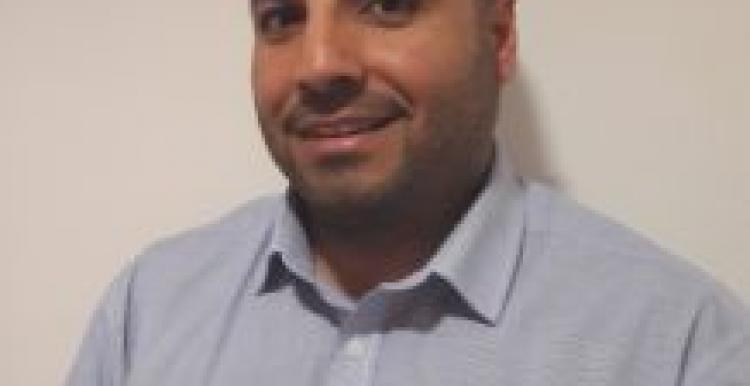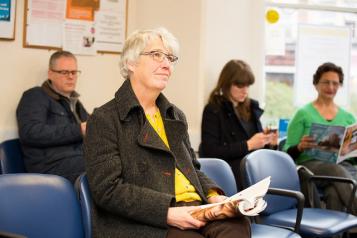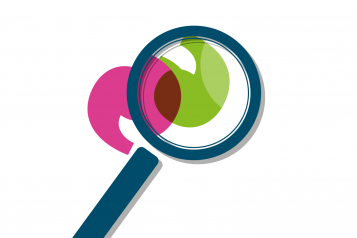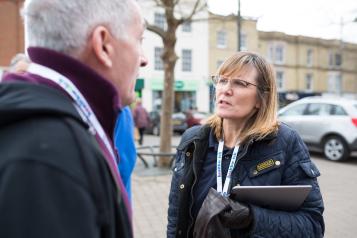Meet Obada: An insight into accessing healthcare as a refugee

Obada is a Syrian refugee. He contributes to local community groups by volunteering and assisting with translation for fellow refugees and asylum seekers. We’re very lucky to have him to help us on our current interpreter services project.
Hello Obada. As an asylum seeker from Syria who was then granted refugee status, what would you say are the main differences between our healthcare system and theirs?
People in Syria if they need a doctor they go to hospital. If they can’t find the doctor there they can go to his home, knock on the door – he has a private surgery there, he can do something help them with a painkiller or something. But when we arrived here to UK it is different, there is a system and nobody know what this system is. It’s started by a number, NHS number and this makes us confused.
They mention that it’s very important and must keep it in a safe place. And to know you’re not a refugee, now you are an asylum seeker until granted refugee status.
So you then have to go to the health centre and book in to confirm that you are here and this is your NHS number, and then from there you’re assigned to a GP practice?
Yes, because up until now you have no postcode, maybe you have come and you are in refugee centre you have no temporary house, until now you are not on the NASS system [National Asylum Support Service]. If I have no health issue it’s ok, there’s no effect. But I meet with some people they have very big issue, they have injuries from war, from Syria. They have a problem in their stomach, or eyes. Some people have no eyes because of a bomb, some are affected and have no fingers, no… they need help from health care.
Can you be treated at the health centre?
Not the full right to treatment just to give you some medicine, just to see you by a Doctor. When we arrived they put us in Liverpool before we are divided up. In Liverpool there is a refugee centre it’s a very big building and in this building there is a small room, there’s a doctor. All refugees come to him because we have no right to go to GP. This doctor cannot make up the full treatment, only to try to help relieve. Just make relief for some pain.
What about other services like hospitals?
I have a friend who has a daughter and one boy, they have mental health problems both of them. There is some malarial item in body, they lose it and this affect their brain and their stomach and they tried to treat this problem in hospital. It took more than six months until they start to put them in the system.
This six month it was a nightmare for this family, because they are new here in UK. They live far away from hospital and they have to take a bus, and these two children are both in the chair. They have to go to bus stop and they don’t know, they have to ask people how to get there. They asked about an ambulance but there wasn’t one for them.
When it comes to things like language and the barriers that people face, how do you think we get on there?
The problem in language is that people cannot describe exactly their health situation. Sometimes this problem can be helped by an interpreter, but sometimes people don’t like an interpreter because of the personal information.
There are some doctors, who when they know that you don’t exactly understand what was said and you need to translate will open Google translator and he translates the language. He lets you read it, or prints it for you.
What are the other issues people face?
In our country the medicine is like a fruit. You can buy it from anywhere, and our thought about medicine is it’s something good. For example sometimes in Syria you’ll find a patient goes out from hospital with a big bag of medicine. A patient will say “Ok they don’t know how to treat me. In my country they give massive amounts…” he doesn’t know that can kill him. This is how you need to change, his mind, his thought. It’s very important.
I see, so the medication here is far more regulated, and it’s regulated for good reasons and the reasons needs to be explained better.
Yes, for the people, for refugees. In Syria you can go home, see there’s nothing in my cabinet. “Ah, I have no antibiotics. Get antibiotic.” Like a shopping list, I go to a pharmacy, give them list and tick, tick, tick. No restriction.
Thanks Obada that’s very enlightening and you’ve raised some interesting issues for us at Healthwatch Manchester.
Feature in our next guest blog
If you’d like to contribute a service user experience story, get in touch. You can send us an article idea of your own or volunteer to be interviewed and we'll do the write up for you.
Contact info@healthwatchmanchester.co.uk


